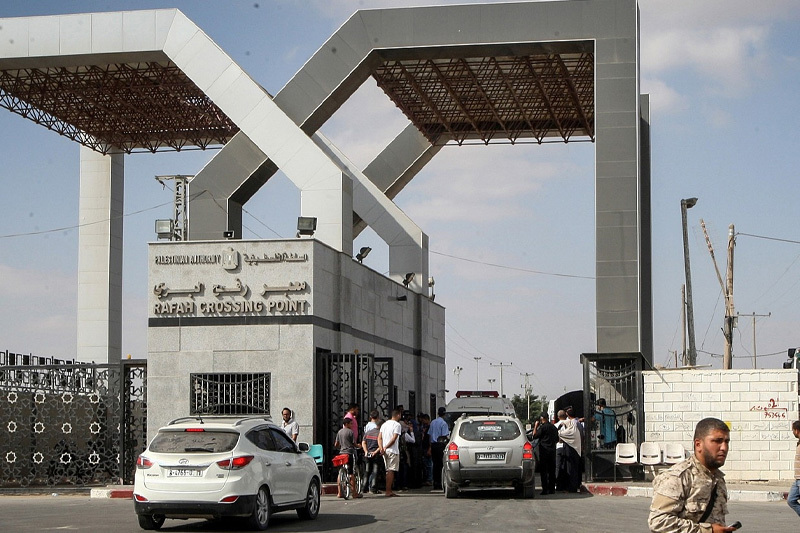
Israel-Hamas War: Rafah Crossing Opens To Injured Palestinians And Foreign Nationals
For the first time in more than three weeks of violence between Israel and Hamas, the Rafah Border Crossing between Gaza and Egypt opened Wednesday for dozens of Palestinian injured requiring hospital treatment and hundreds of foreign passport-holders.
The opening of the crossing was negotiated between Israel, Hamas and Egypt, in coordination with the US. It follows mounting international pressure to open Rafah on humanitarian grounds. However, there is no indication for how long the crossing would remain open.
Israel Hits Gaza’s Largest Refugee Camp
Egypt has agreed to let in 81 of the most badly injured on Wednesday, seeking evacuation, according to the border authority in Gaza. Live pictures from television crews at the border on the Gaza’s side showed a number of people and cars moving through the gates.
In recent weeks, hundreds of people have gathered at Rafah at different times, but have not been allowed out. No one had been allowed to escape, except for four hostages. More than 200 trucks of desperately needed aid have crossed into the enclave from Egypt.
Keep Reading
Reports that the crossing would open on Wednesday came shortly after an Israeli strike on the largest refugee camp in Gaza. While the Israeli military said it had targeted the camp to kill a key Hamas commander, the enclave’s health ministry said at least 50 people lost their lives.
The Rafah opening came as Palestinians reported another widespread outage of internet and phone service in Gaza, hours after Israeli airstrikes flattened buildings and as ground troops fought against Hamas militants inside the besieged territory.
Raging Diplomatic Protests Against Israel
Meanwhile, multiple South American countries have launched diplomatic protests against Israel. Bolivia has severed ties with Israel, something similar to its 2009 move when it broke off relations after Israel’s invasion of Gaza, but re-established relations in 2020.
While Colombian President Gustavo Petro likened Israel’s actions to those of Adolf Hitler’s Nazis, his Chilean counterpart, Gabriel Boric, said he had recalled his country’s ambassador in Tel Aviv to discuss the “unacceptable violations of international humanitarian law”.




